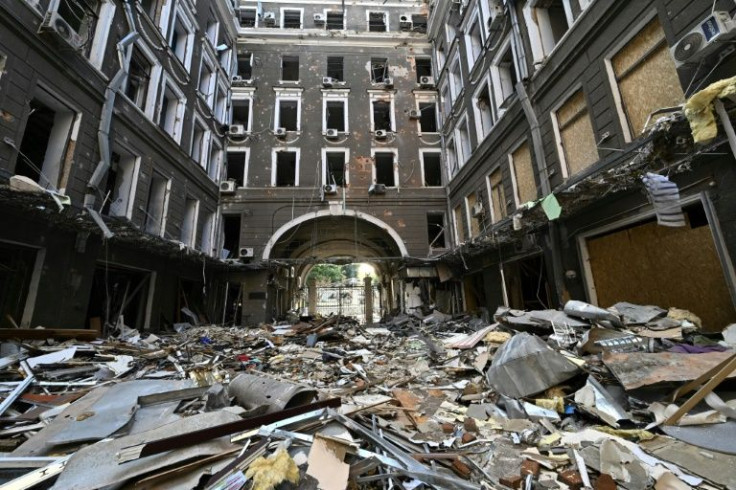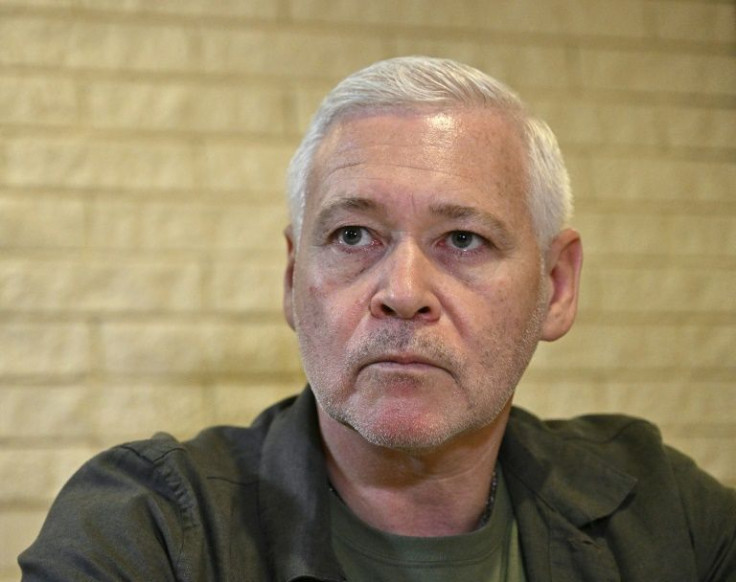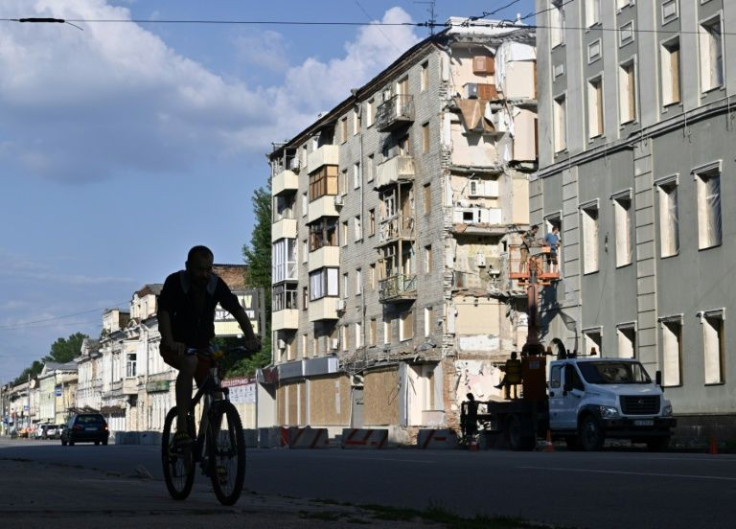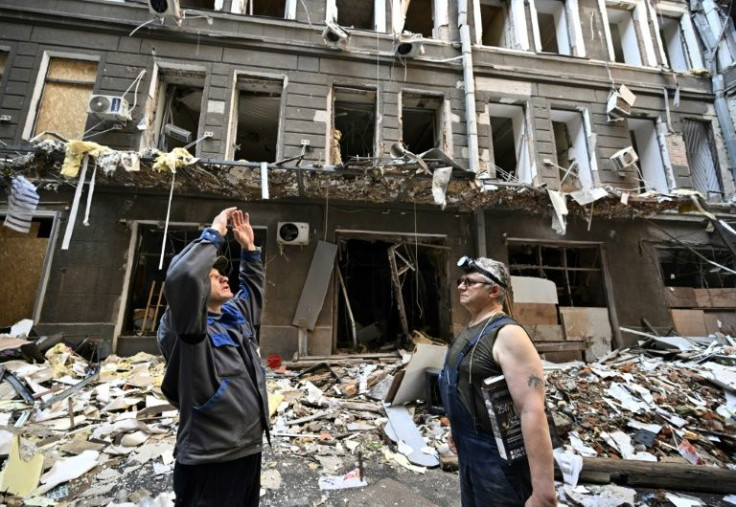Mayor Of Kharkiv Says Nowhere In Ukraine's Second City 'Safe'
The unmistakable boom of shellfire echoed around the bomb-scarred buildings of western Kharkiv as the mayor of Ukraine's one-time Soviet capital prepared for his interview.
Yet the explosion in the suburb of Pisochyn barely registered in a city that has been a key focus of the Russian invasion, its hardest-hit districts pounded to ruins.
"The Russian aggressors are trying to turn Kharkiv into a pitiful city, like the ones they have in Russia," Igor Terekhov told AFP in a cafe in the city centre.
"But they won't succeed. And, as you see, the people of Kharkiv are defending their city, weapons in hand," the Russian-speaking official said through an interpreter.

Elected in November last year, the 55-year-old soon found himself staring down the combined might of tens of thousands of Russian troops pouring over the border, which at its closest is just 30 kilometres (20 miles) away.
Kharkiv -- Ukraine's second biggest city -- was besieged from the first days of the full-scale conflict.
It looked as if it would quickly fall to invading Russian troops, who were backed by massive artillery fire and missile strikes.
Ukrainian forces managed to stem the advance, pushing the invading force back from the outskirts of the city.

But the Russians remain dug in just a few kilometres away, leaving most of Kharkiv vulnerable to shelling.
"We have nine districts in the city and they are all being bombed with varying intensity and at different times. So you can't say anywhere in Kharkiv is safe," he said.
"Yes, it is safe in the shelters and it is safe in the metro... But there is no district, no place in the city, where you can claim it is totally safe."

By the end of March, almost a third of Kharkiv's residents had left, seeking refuge in towns and cities further west, where going about daily life does not generally mean running the gauntlet of cruise missiles and artillery fire.
There was a brief lull in early May when Russian forces withdrew towards the border.
Some 2,000 people a day returned by train, small businesses reopened and beleaguered residents emerged from subway stations.
But the bombardment quickly resumed, shattering any hope of a return to pre-war normality.

Last week a barrage of shelling killed three people, including a 13-year-old boy, adding to a toll that Terekhov says is in the "many hundreds", although he declines to offer a precise figure.
The war has also destroyed 30 percent of houses and apartments in the city, Terekhov said, leaving a staggering 150,000 people homeless.
"It's more than the population of many European cities... One hundred and one kindergartens, 110 schools, 53 medical institutions and a perinatal centre were hit," he said.
"Much of this cannot be rebuilt. Also, a metro depot, transformer substations, our municipal transport network."
Kharkiv, which is far closer geographically to Russia than to Kyiv, is largely Russian-speaking and for a long time was viewed as more sympathetic to Moscow than many of Ukraine's central and western cities.
That sentiment changed with Russia's annexation of Crimea in 2014 and the start of a Moscow-backed separatist conflict in neighbouring regions of the east.
Antipathy to the Kremlin has only hardened since the invasion began on February 24.
Some Ukrainian officials now fear a renewed Russian attempt to take the city, which had a pre-war population of about 1.4 million.
"The Russian aggressor tries constantly to enter Kharkiv city. That's why we are preparing ourselves and our army is training," Terekhov said.
"We must defend our city. And we will defend our city. We will defend Ukraine."
Asked how long he sees the battle in eastern Ukraine raging, the mayor said he could not second-guess Moscow's intentions but hoped for a Ukrainian victory "as soon as possible".
He is already looking towards a future with Kharkiv's people not just surviving but thriving.
He livened up when he began setting out his vision for the city's revival, retaining its old-town charm while transforming it into a national hub for technology and innovation.
"After our victory, there will be a new dynamic in Kharkiv, in Ukraine," he said.
"And we have this opportunity to build a new city and a new country."
© Copyright AFP 2024. All rights reserved.





















